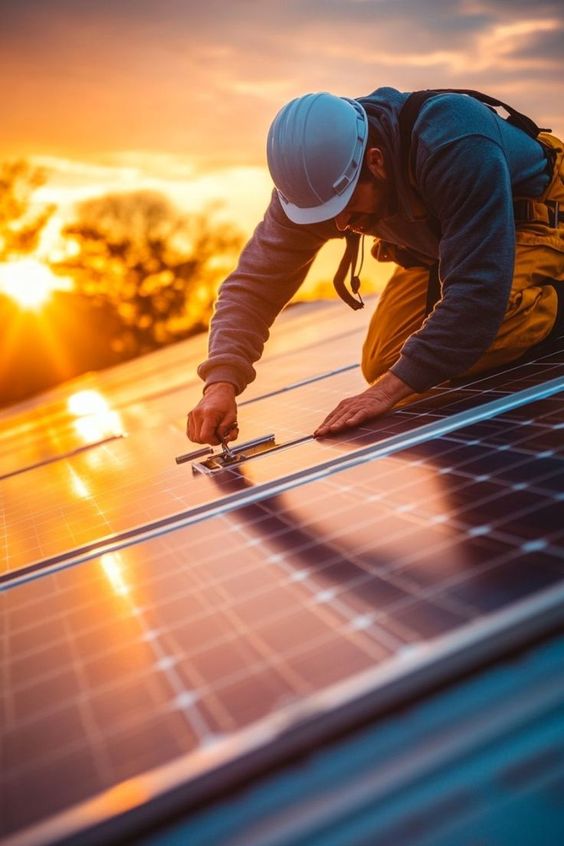In recent years, solar panels have become increasingly popular as a source of renewable energy. As the world shifts toward more sustainable practices, solar energy offers homeowners a way to reduce their environmental impact while also lowering electricity bills. If you’re thinking about going solar, here’s everything you need to know about solar panels—how they work, their benefits, and why they might be the right choice for your home.
How Solar Panels Work
Solar panels, also known as photovoltaic (PV) panels, convert sunlight into electricity. They are made up of many individual solar cells, which are usually composed of silicon. Here’s a brief breakdown of the process:
Absorbing Sunlight: Solar cells capture sunlight and convert it into direct current (DC) electricity. This happens when the sun’s photons (light particles) knock electrons loose from the atoms in the silicon cells, generating electricity.
Converting Electricity: Most homes and businesses run on alternating current (AC) electricity, so the DC electricity produced by solar panels must be converted. This is done by an inverter, which turns DC electricity into usable AC electricity.
Energy Consumption: Once converted, the AC electricity powers your home. If your solar panels generate more electricity than you use, the excess can be sent back to the grid (in some cases) or stored in a battery for later use.
Net Metering: In areas where net metering is available, you can receive credits for any excess energy your panels send to the grid, which can offset future electricity use.
Benefits of Solar Panels
Reduced Electricity Bills: One of the primary reasons people install solar panels is to save on energy costs. Depending on your location, the size of your solar system, and your energy consumption, you can significantly reduce or even eliminate your electricity bills.
Environmental Impact: Solar energy is clean, renewable, and abundant. By using solar panels, you reduce your reliance on fossil fuels, which helps lower your carbon footprint and contributes to the fight against climate change.
Increased Home Value: Installing solar panels can increase your property value. Many buyers are attracted to homes with solar panels because they see the potential for lower energy bills and sustainable living.
Energy Independence: Solar panels allow you to generate your own electricity, reducing your dependence on the grid and insulating you from rising energy prices.
Government Incentives: In many regions, governments offer incentives such as tax credits, rebates, or grants for installing solar panels. These incentives can reduce the upfront cost of your system, making it more affordable.
Factors to Consider Before Installing Solar Panels
Upfront Costs: The initial cost of purchasing and installing solar panels can be substantial. However, many financing options are available, including solar loans, leases, and power purchase agreements (PPAs), which can help spread out the cost.
Location: The effectiveness of solar panels depends on your location. Homes in sunny regions will generate more electricity, but even homes in areas with less sunshine can benefit from solar energy. It’s important to consider how much sunlight your property receives and whether your roof has the right orientation and angle.
Roof Condition: Solar panels are typically installed on roofs, so your roof needs to be in good condition before installation. If your roof is nearing the end of its lifespan, it’s a good idea to replace it before adding solar panels.
Maintenance: Solar panels require little maintenance, but occasional cleaning and inspections can ensure they continue to operate efficiently. Debris, snow, or dirt that accumulates on the panels can reduce their efficiency.
Return on Investment (ROI): While solar panels can significantly reduce electricity costs, the time it takes to recoup your investment varies. Factors such as the cost of installation, local energy rates, and available incentives will determine your payback period.
Solar Panels and Battery Storage
For those looking to maximize the benefits of solar power, adding battery storage to your solar system is an option worth considering. Battery storage allows you to store excess energy generated during the day for use during the night or during power outages. This provides greater energy independence and ensures you have access to electricity even when the sun isn’t shining
 .
.















